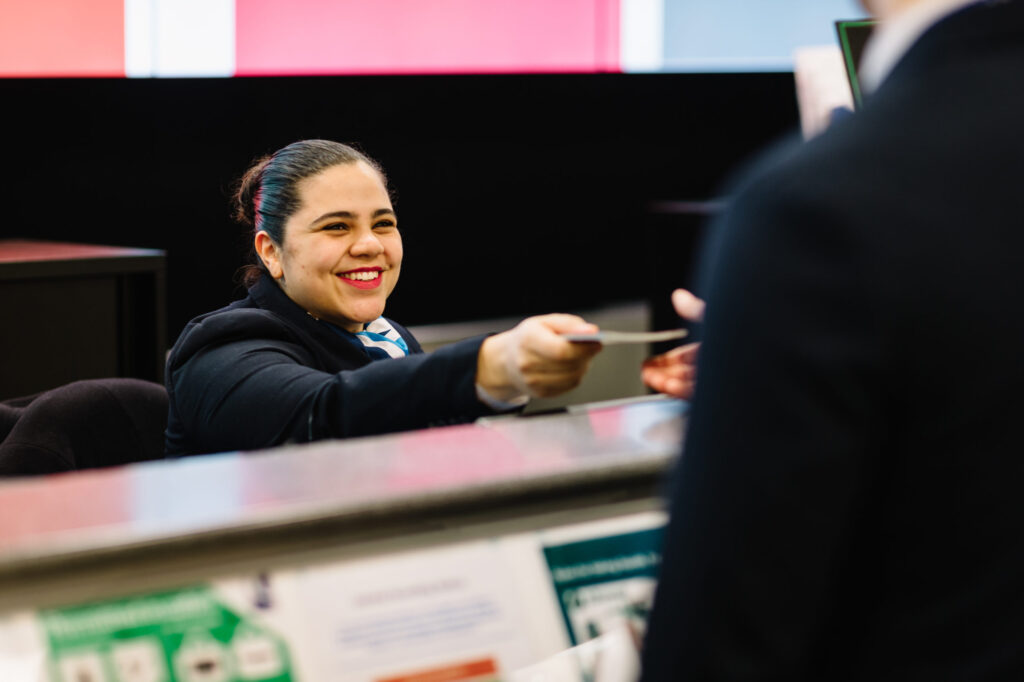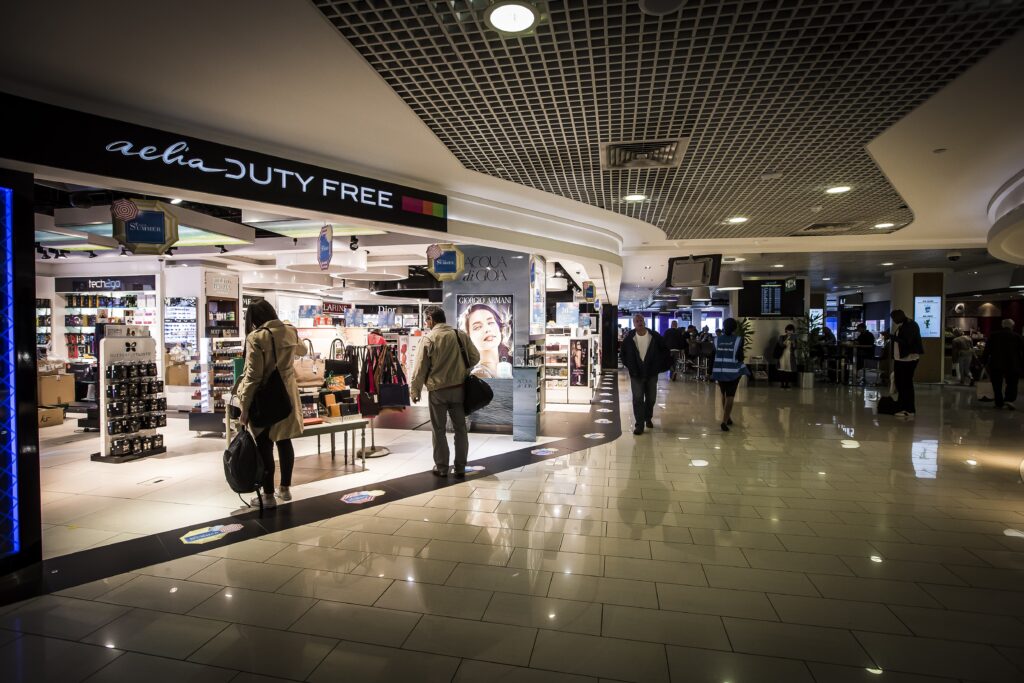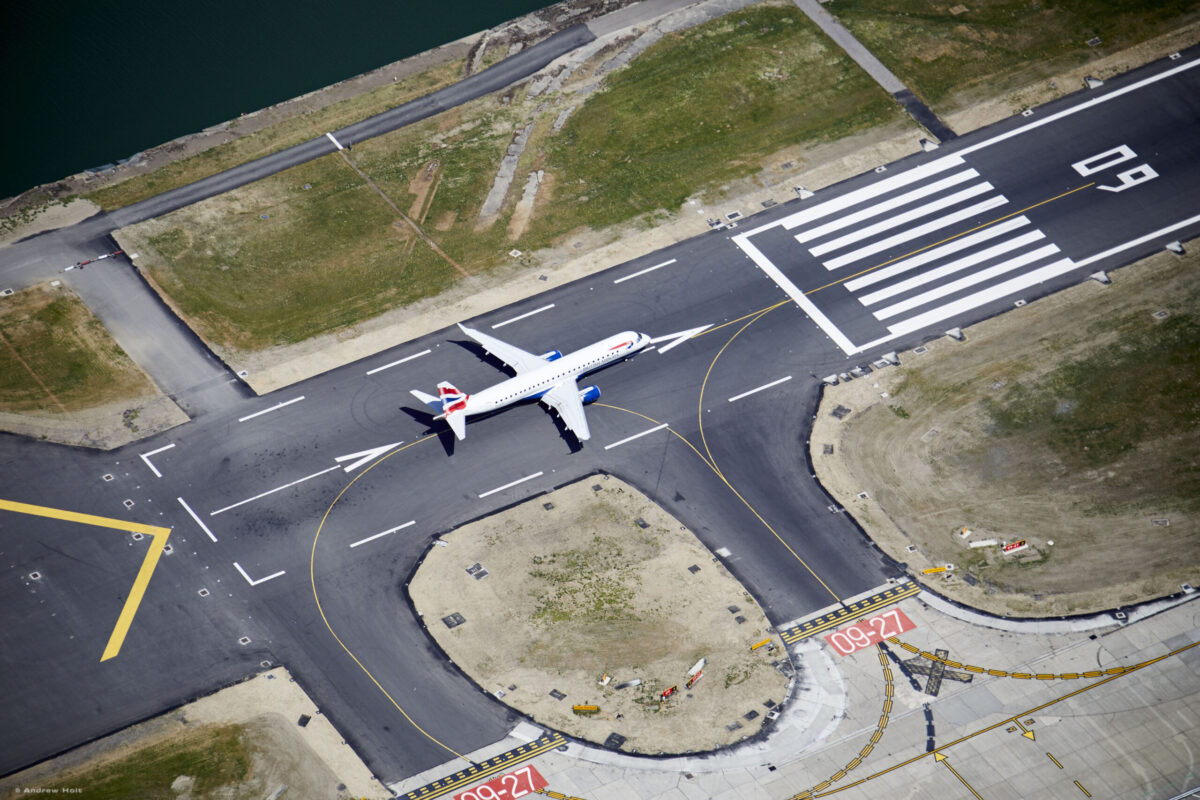Aviation’s economic significance to London, and the UK as a whole, is clear – we have the third largest aviation network in the world and UK aviation – passenger and freight – has an estimated value of more than £28bn.
It is estimated that the industry will take some time to recover from the devastating effects of the pandemic, with forecasts suggesting passenger numbers will not return to 2019 levels until 2024.
But already, with testing requirements easing and quarantine rules relaxing, London City Airport is on a mission to build back to pre-pandemic levels and overcome the short and long-term effects of lockdowns and restrictions.
Liam McKay, Director of Corporate Affairs, said:
“People need to travel for a variety of reasons, for business and pleasure. So many London businesses, from SMEs to multinationals, have interests abroad. Yes, we’ve learned to use video conferencing but there’s so much more to a business process than that – and we need people back face to face.
“London is a global city. Its communities are what they are because people come in from around the world, to live and to visit, to experience our history and culture. We need that to continue, to support livelihoods right across the economy.”
London City Airport is the city’s most central airport, positioned as it is in London’s Royal Docks, an area of rapid regeneration and investment, just five miles from the City of London. It’s also known as being the UK’s most punctual airport, favoured by travellers for its convenient location and quick and efficient passenger experience – averaging 20 minutes or less from the door to the departure lounge.
The London City Airport Business Travel Economic Report 2020, published just as the effects of the coronavirus pandemic were starting to be felt, showed that:
- 64% of businesses believe the air travel is important to the success of their business, nearly twice as many as disagree (34%)
- 60% believe that air travel is important to maintaining business relationships; this is even higher (82%) for leaders of businesses with an annual turnover of more than £1million.
- 70% of business leaders in London think that air travel helps their business increase their revenue
- 48% believed at the time that the biggest barrier to travelling for business was the Government’s travel restrictions and quarantine rules and 71% believe that removing these restrictions would increase confidence when travelling
When the pandemic struck, London City Airport was one of the few airports to take the decision to temporarily cease operations. Plans were put in place to do whatever was needed to support the Nightingale Hospital at Excel, although little input was required in the end. September to November 2021 saw a return to close to normal, business traffic rates were back up to 46% of total passenger numbers but not really close to what had been seen in pre-pandemic times. For example, the busiest day in 2019 saw 21,000 people go through the airport. The whole of 2021 amounted to 37,000 people.

Liam McKay said:
“We got back to a period of positive momentum and then it just disappeared because of Omicron and Plan B restrictions that were quickly put in place. We probably lost about 40% of passenger numbers.
“The recent news has been more positive. Testing and quarantine was just too much of a barrier to travel for some people, and then we need a game plan for dealing with variants to keep business and trade going gives you market confidence and consumer confidence.
“People will adapt, they will do what they think is the right thing to do, find a way to live with COVID and adapt to risk. And it’s vital that we do, because although there is a place for video conferencing, it can’t replace visiting a potential market or client, you need to be there, see things for yourself, carry out due diligence and build relationships.
“Even before coronavirus we had seen a shift in working patterns. Travel had definitely tailed off on Fridays, and that was starting to happen on Mondays as well. People are going to spend less time in the office, but we still need business travel.”
London City Airport serves key international business hubs, including Edinburgh, Amsterdam, Zurich, Belfast and Frankfurt. Leisure travel has increased in recent years, particularly premium-end leisure to European ski resorts and city and holiday destinations in southern Europe.
Flexibility is the most important factor in business travel and London City Airport aims to offer regular rotations so that travellers who don’t make an earlier flight still have the optin of travelling later in the day.
“Flexibility and flight options drive business flow,”
said Liam.
“We’re an urban airport that is surrounded by people who could use our services for business or leisure. We can be accessed quickly and conveniently using sustainable means of transport. And, increasingly, airlines are seeing the benefits of that.
“The airlines have been hit incredibly hard, too, of course and we’re working with them to get things back on track. They are feeling some of the same pain we are, so we’ve worked together to find ways to help them through this crisis as well. As an airport, we had to make some difficult decisions but it would have been too easy to pull back too much financially. We needed to look long term, support the airlines and do our best to be in a position to get back to where we want to be.
“Part of that is looking at new business markets, and one way we can do that is by working with the business community in London and find out from them what they need in terms of service. That will give us business insight and intel that we are very happy to take to airlines. I’m always willing to have those conversations with London business community. Airlines are always looking to understand what people want and maximise use of their aircraft, so together, we have potential for an exciting blend.”

In his foreword to the London City Airport Business Travel Economic Report 2020, the airport’s CEO, Robert Sinclair, said:
“At the start of 2020, the prospects for the UK’s aviation industry were bright. Many UK airports, including London City, posted record passenger numbers in 2019 and were planning for further growth this year. Aviation has undoubtedly been one of the sectors hardest hit by the pandemic, but the restart of air travel is vital to the UK’s economic recovery.
“Aviation brings in visitors and investment to London and the whole UK from all over the world, but it also enables UK businesses to go out, export and expand globally. Equally, air travel is crucial to the Government’s ‘levelling up’ agenda, linking regions to the capital and enabling businesses both large and small to connect and grow.
“There is no question that the pandemic has weakened this connectivity and adversely impacted the businesses that depend on it, but we cannot allow this damage to become permanent and impede the economic recovery. After all, everybody understands that the health of the nation depends on the health of the economy: we cannot choose one or the other.
“Aviation’s importance has not diminished. With the right plan in place, we are convinced that aviation can not only recover but drive the recovery of London and the UK economy too.”
For more information visit www.londoncityairport.com

